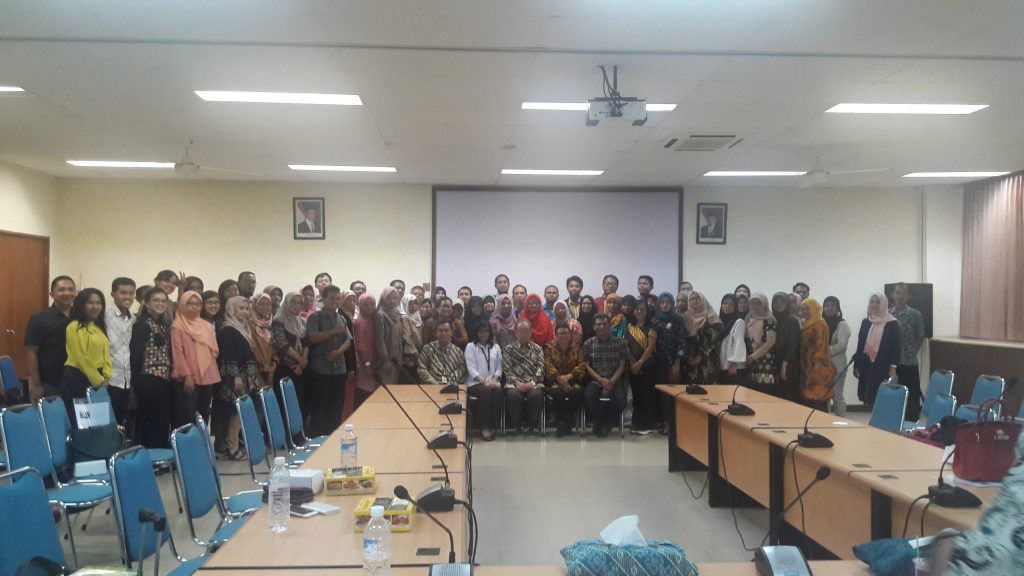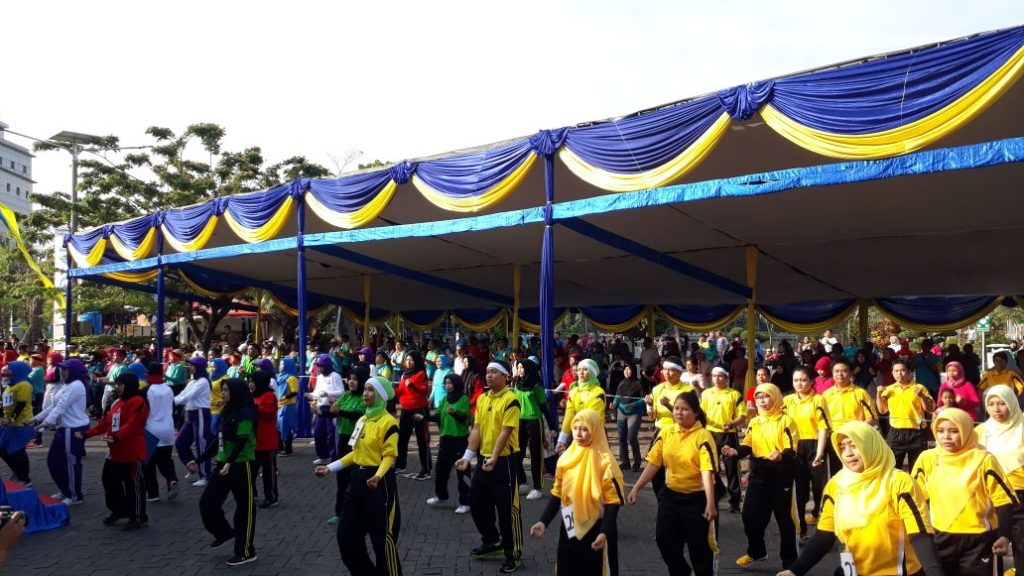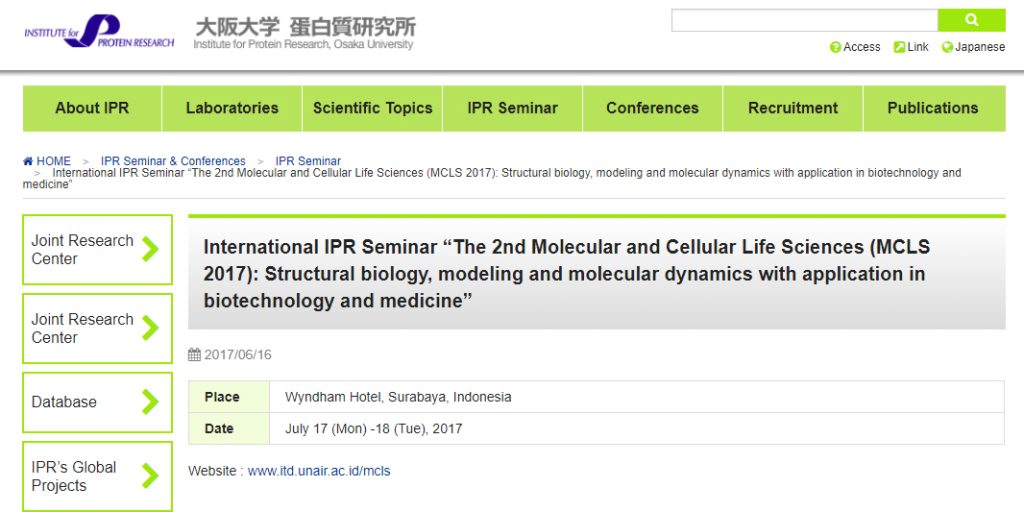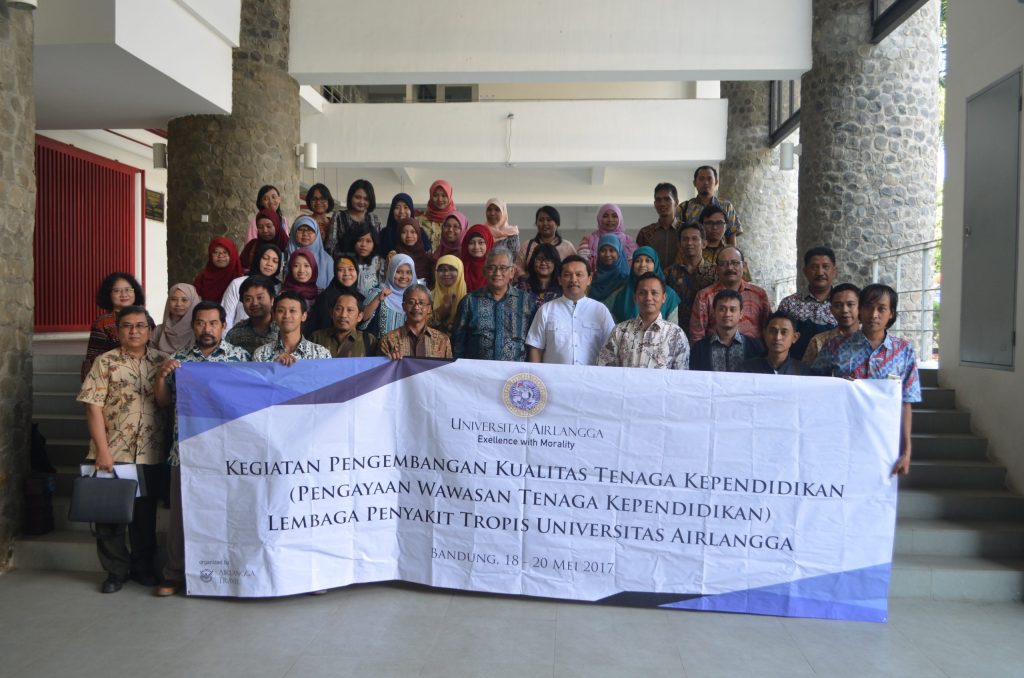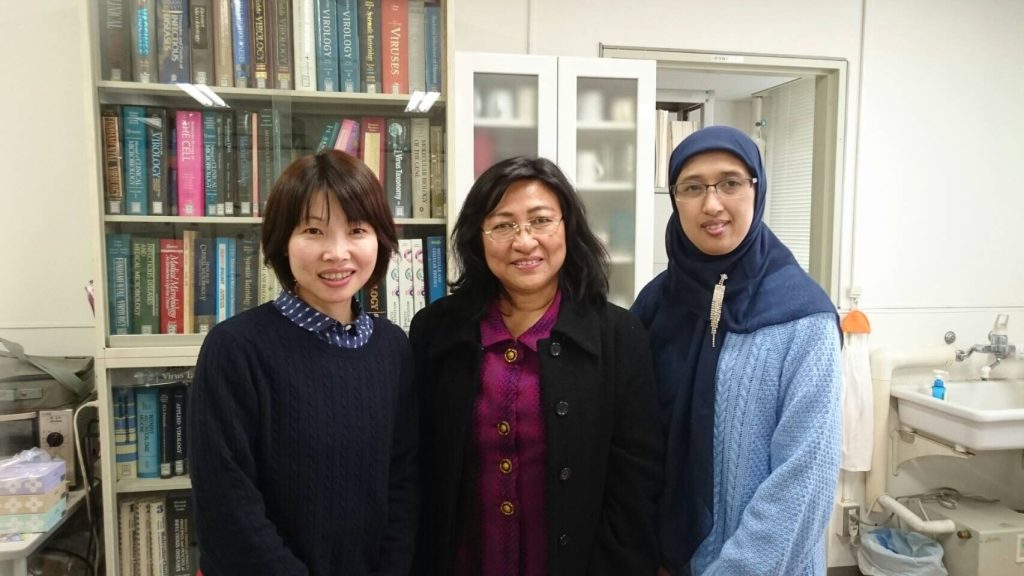{:en}Training Controlling and Identification on Dengue Fever on Sawahan District{:}{:id}Training Manajemen dan Identifikasi DBD di Daerah Sawahan{:}
{:en}Public health issues are an important issue that has always been a concern in Indonesia. Various cases of vector-borne diseases such as malaria and dengue are often the headlines in various national media outlets. Often the epidemic of this disease must take a lot of lives. The spread of this disease becomes difficult to handle one of them due to the limited knowledge of health technical personnel or pest controler against the control of the vector insects that carry it. Therefore, Tropical Disease Institute (ITD) through Dengue Study Group and Entomology Study Group in cooperation with Puskesmas Sawahan organizes regular courses under the name Integrated Vector Management and Identification (Integrated Vector Management and Identification). During this district Sawahan district is a red zone Dengue Fever, after the training is expected to decrease the people who contracted dengue fever. Training topics delivered with presentation and discussion methods (75%) are also practice and simulation (25%). The topics to be covered in this training are: Biology and vector ecology (mosquitoes, flies and cockroaches), vector surveillance methods (malaria, filariasis, dengue, zika and chikungunya), vector control applications, insecticide types and formulations for vector control, Resistance and management, Policy related to vector control in Indonesia, Integrated vector management (integrated vector management).{:}{:id}Masalah kesehatan masyarakat merupakan isu penting yang selalu menjadi perhatian di Indonesia. Berbagai kasus penyakit yang ditularkan melalui vektor seperti malaria dan demam berdarah sering menjadi berita utama di berbagai media nasional. Seringkali epidemi penyakit ini harus memakan banyak nyawa. Penyebaran penyakit ini menjadi sulit untuk ditangani salah satunya karena keterbatasan pengetahuan tenaga teknis kesehatan atau pengendalian hama terhadap pengendalian serangga vektor yang mengangkutnya. Oleh karena itu, Tropical Disease Institute (ITD) melalui Kelompok Studi Dengue Study dan Kelompok Studi Entomologi bekerjasama dengan Puskesmas Sawahan menyelenggarakan kursus reguler dengan nama Manajemen dan Identifikasi Vektor Terpadu (Integrated Vector Management and Identification). Selama ini kabupaten Sawahan adalah zona merah Demam Berdarah Dengue, setelah pelatihan diharapkan bisa menurunkan orang yang terjangkit demam berdarah. Topik pelatihan disampaikan dengan metode presentasi dan diskusi (75%) juga praktek dan simulasi (25%). Topik yang akan dibahas dalam pelatihan ini adalah: Biologi dan ekologi vektor (nyamuk, lalat dan kecoak), metode surveilans vektor (malaria, filariasis, demam berdarah, zika dan chikungunya), aplikasi pengendalian vektor, jenis insektisida dan formulasi untuk pengendalian vektor, Perlawanan dan manajemen, Kebijakan yang terkait dengan pengendalian vektor di Indonesia, Pengelolaan vektor terpadu (integrated vector management).{:}




